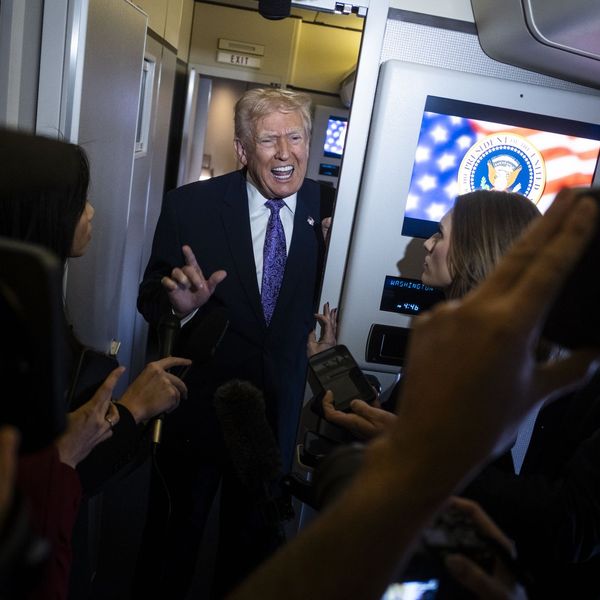MONEY, by definition, is a medium that can be exchanged for goods and services and is used as a measure of their values in the market. We are taught that the value of some things, such as our integrity as individuals, our privacy, and our right to free expression, cannot be expressed in monetary terms.
But in the United States today, we apply this principle inconsistently -- and generally in ways that undermine democracy and favor wealthy people and special interests.
The US Supreme Court, in its 1976 decision in the case Buckley v. Valeo, essentially concluded that free expression can be counted in dollars. Money spent to influence elections, the court concluded, is a form of constitutionally protected free speech.
Most of the money raised by candidates goes toward gaining access to the public airways; candidates for president spend 60 percent or more of their campaign money on television and radio ads. All this money is spent as if Rupert Murdoch and billionaires like him owned the airwaves. But it is really you who own the airwaves. All licensed TV and radio stations are defined by law as public trustees, committed to serve the public interest during eight-year terms. These broadcasters are just granted use on your spectrum, for which they pay nothing.
In reality, commercial TV and radio stations are also businesses that primarily sell advertising, including campaign ads, for profit. Perhaps this is what the court really means when it said that money is free speech. If you have enough money you can get an exclusive free license to speak on public airwaves.
Other Western democracies presume political speech and access to airwaves are priceless. So France, for example, requires all media to provide an equal forum to all candidates, if it is provided to one. Free access to broadcasting's mass audiences is wholly consistent with democracy and the public interest. Moreover, the FCC already has sufficient authority to make this a condition to hold an otherwise free broadcast license as a public trust. Without the requirement to spend huge amounts of money to access instant mass audiences, candidates could instead focus on issues of concern to the American people, and the cost of elections would decrease.
But perhaps the United States instead will continue to act as if basic rights can be bought, sold, and owned. President Bush is on record saying that we ought to create an "ownership society." If so, we ought to go all the way. Let's do that by giving individuals a property right in their own names and personal identifiable information.
This reform would not protect individual privacy from undue government surveillance. But it would begin to limit the amount of personal data collected, maintained, and processed by commercial firms that seek to sell us political candidates -- not to mention goods and services -- based on our spending habits, consumer and political preferences, and psychographic makeup.
Suppose all Americans had a copyright or trademark in their personal information and profile; the actual monetary value could be as little as 1/1000th of a cent. A business would first have to get permission to use an individual's intellectual property and to compensate him or her for any commercial use and benefit. Not to do so would be a trespass, illegal appropriation, or copyright violation. Under this copyright system, individuals would be able to track who is using personal information about then and for what purposes.
Yet, instead of enhancing Americans' ability to maintain control -- individually or collectively -- of their own lives, Congress has scaled it back. To monitor what is happening with new technologies that allow private banks and big mortgage companies to make money off our private data, we all should insist, for instance, that Congress reestablish and adequately fund the defunct Office of Technology Assessment. The office was established in 1972 to provide congressional committees with nonpartisan, trusted analysis of emerging, difficult, and often highly complex technical issues that affect our society. But in September 1995, Congress shut it down. Since then, members have made science and technology policy without fully knowing about the possible benefits and downsides.
If we are keen on truly becoming an ownership society, the most important thing the people must own is their democracy -- which implies owning their government and their own identities.
Nolan Bowie, a guest columnist, is an adjunct lecturer in public policy and a senior fellow at the John F. Kennedy School of Government.
(c) 2007 The Boston Globe


